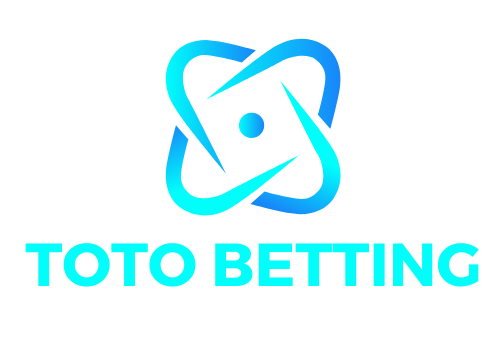The Impact of Legal Developments on Online Betting Exchange Platforms
In the ever-evolving landscape of online gambling, the legal framework surrounding betting exchange platforms plays a pivotal role in shaping their operations, growth, and sustainability. As lawmakers across the globe grapple with regulating this burgeoning industry, the impacts of legal developments are profound, influencing everything from user experience to market dynamics. In this comprehensive exploration, we delve into the multifaceted effects of legal changes on online betting exchange platforms.
1. Regulatory Compliance: Navigating the Legal Maze
The cornerstone of any online betting exchange 슈어맨 무료중계 platform is adherence to regulatory requirements. Legal developments dictate the framework within which these platforms must operate, encompassing licensing, taxation, anti-money laundering measures, and responsible gambling practices. Compliance with evolving laws ensures the legitimacy and trustworthiness of betting exchanges, safeguarding both operators and users.
Regulatory compliance is not a one-time task but an ongoing commitment for online betting exchange platforms. As laws change and regulatory bodies update their guidelines, platforms must adapt swiftly to remain compliant. Failure to comply with regulations can result in severe penalties, including fines, license revocation, and reputational damage. Therefore, robust compliance mechanisms and proactive monitoring of regulatory changes are essential for the long-term viability of betting exchanges.
2. Market Entry and Expansion: Breaking Barriers or Facing Hurdles?
Legal developments can either facilitate or impede market entry and expansion for online betting exchange platforms. Progressive regulations may open new jurisdictions for operators, fostering competition and innovation. Conversely, stringent laws or prohibitive measures can restrict access to lucrative markets, stifling growth opportunities and forcing operators to reconsider their strategies.
For instance, the legalization of online gambling in certain regions presents an opportunity for betting exchange platforms to enter new markets and tap into previously inaccessible customer bases. However, navigating the complex web of regulations, licensing requirements, and compliance standards in each jurisdiction can be daunting. Moreover, entrenched incumbents and vested interests may resist the entry of new players, further complicating market access for aspiring operators.
3. Consumer Protection: Balancing Freedom with Responsibility
Enhancing consumer protection is a primary objective of legal developments in the online gambling sphere. Regulations often mandate measures such as age verification, self-exclusion programs, and dispute resolution mechanisms to safeguard the interests of players. By promoting responsible gambling practices, legal frameworks aim to mitigate the risks of addiction and harm associated with online betting.
While consumer protection measures are essential for fostering a safe and transparent gambling environment, there is a delicate balance to be struck between regulatory intervention and individual freedom. Excessive regulation may stifle innovation and limit consumer choice, driving players towards unregulated or offshore operators. Therefore, policymakers must carefully calibrate regulatory interventions to achieve optimal outcomes that prioritize both consumer protection and industry innovation.
4. Technological Innovation: Driving Compliance and Adaptation

As legal requirements evolve, online betting exchange platforms must continually innovate to remain compliant. Technological advancements, such as blockchain-based solutions for transparency and data security, are increasingly employed to meet regulatory standards. Moreover, developments in artificial intelligence and machine learning enable platforms to enhance fraud detection, risk management, and responsible gambling tools.
Blockchain technology, in particular, holds immense promise for revolutionizing the online gambling industry by providing immutable and transparent transaction records. By leveraging blockchain-based smart contracts, betting exchange platforms can automate payout processes, verify the integrity of bets, and enhance trust among users. Additionally, machine learning algorithms can analyze vast datasets to identify patterns of problematic gambling behavior and intervene proactively to prevent harm.
5. Taxation Policies: Impact on Profitability and Market Dynamics
Taxation policies significantly influence the profitability and competitiveness of online betting exchange platforms. High tax rates can erode profit margins and deter operators from entering certain markets, leading to reduced consumer choice and market consolidation. Conversely, favorable tax regimes may stimulate investment and innovation, driving growth in the industry while ensuring adequate contributions to public coffers.
The taxation of online gambling varies widely from one jurisdiction to another, with some countries imposing hefty taxes on gambling revenue while others adopt more lenient approaches. In highly taxed markets, operators may be forced to pass on the additional costs to consumers through higher betting odds or transaction fees, potentially driving users towards unregulated alternatives. Therefore, policymakers must carefully balance the need for tax revenue with the goal of fostering a competitive and sustainable gambling ecosystem.
6. Legal Challenges and Litigation: Navigating Uncertain Terrain
The legal landscape surrounding online betting exchange platforms is rife with challenges and potential pitfalls. Litigation arising from regulatory disputes, intellectual property infringement, or consumer complaints poses significant risks to operators. Legal clarity and consistency are essential to minimize uncertainty and mitigate legal liabilities, enabling platforms to focus on delivering a seamless betting experience to users.
Legal challenges can arise from various sources, including ambiguous or conflicting regulations, jurisdictional disputes, and divergent interpretations of existing laws. In some cases, operators may find themselves embroiled in lengthy legal battles with regulatory authorities or competing stakeholders, draining resources and undermining business continuity. Therefore, proactive engagement with legal experts and regular compliance audits are essential risk management strategies for betting exchange platforms.
7. Global Harmonization vs. Fragmentation: Striking a Balance
The globalization of online gambling presents both opportunities and challenges for regulatory frameworks. While harmonized standards can facilitate cross-border operations and regulatory compliance, divergent legal approaches among jurisdictions often result in fragmentation. Achieving a delicate balance between global cooperation and national sovereignty is crucial to ensure the effectiveness and legitimacy of regulatory regimes governing online betting exchanges.
The lack of harmonization in online gambling regulations poses significant challenges for betting exchange platforms operating in multiple jurisdictions. Each country may have its own set of rules and requirements, creating a complex compliance landscape for operators to navigate. Moreover, differences in cultural norms, political ideologies, and economic interests can further complicate efforts to achieve regulatory convergence at the international level.
8. Emerging Trends and Future Prospects: Anticipating Legal Evolution
The dynamic nature of the legal landscape necessitates continuous monitoring of emerging trends and developments. Evolving regulatory frameworks, technological innovations, and socio-political factors shape the future trajectory of online betting exchange platforms. Key trends to watch include the legalization of sports betting in new markets, the integration of cryptocurrency payments, and the convergence of online gambling with other forms of entertainment.
The legalization of sports betting in the United States, for example, has sparked a wave of investment and innovation in the online gambling industry, with betting exchange platforms vying for a share of the lucrative market. Similarly, the rise of decentralized finance (DeFi) and blockchain-based gambling platforms presents new opportunities and challenges for traditional operators, forcing them to adapt to changing consumer preferences and technological paradigms.
9. Stakeholder Engagement and Advocacy: Shaping Policy Outcomes
Effective stakeholder engagement and advocacy play a vital role in influencing the direction of legal developments affecting online betting exchange platforms. Industry associations, consumer advocacy groups, and regulatory bodies collaborate to foster constructive dialogue and shape policy outcomes that strike a balance between regulatory objectives and industry interests. Transparent and participatory decision-making processes are essential for building trust and consensus among stakeholders.
Stakeholder engagement is not limited to industry players and regulators but also includes representatives from academia, civil society, and the broader community. By incorporating diverse perspectives and expertise into the policymaking process, regulators can develop more robust and effective regulatory frameworks that address the needs and concerns of all stakeholders. Moreover, ongoing dialogue and collaboration help build trust and credibility, laying the foundation for a sustainable and responsible gambling ecosystem.







